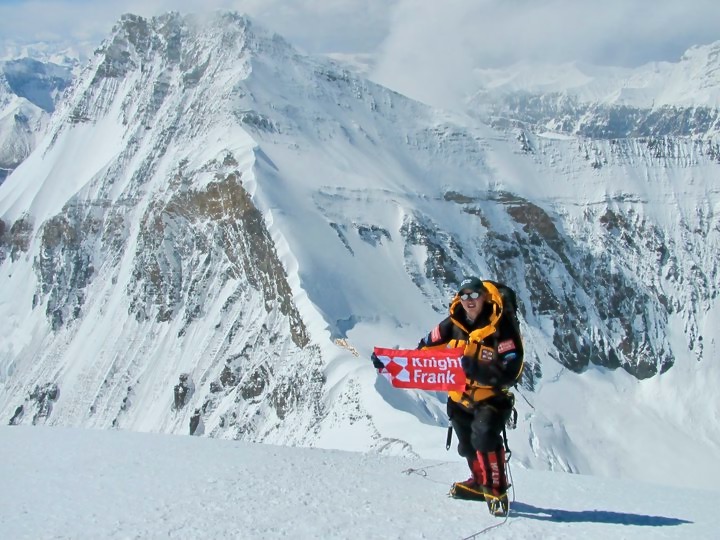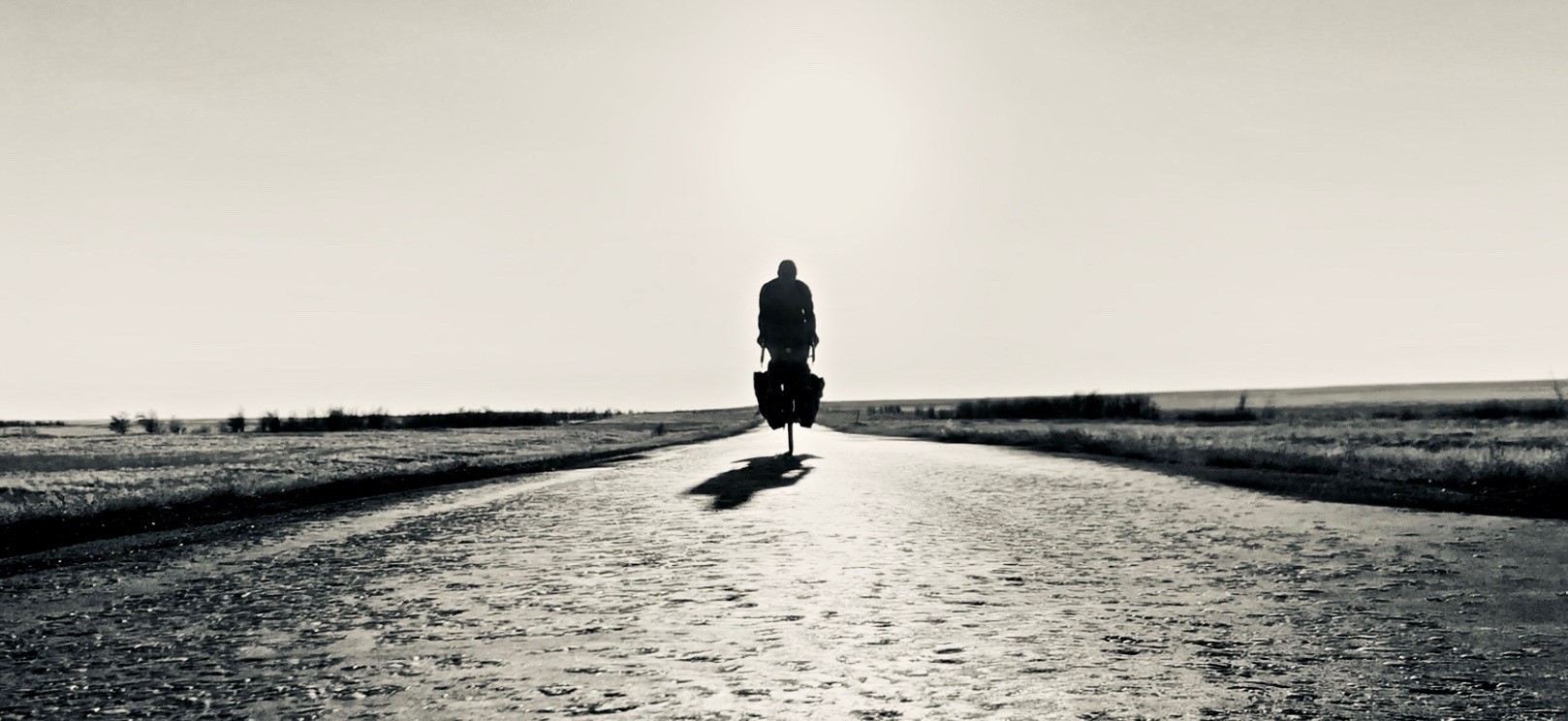In October, my second book, A Rolling Stone: Taking the Road Less Travelled, was released.

How to get sponsorship for an expedition
Sponsorship is everywhere around us from TV advertising and newspapers to professional sport and posters on the London Underground. The world of adventures and expeditions is no different. If you can offer front-page news stories, primetime TV and millions of Instagram followers then sponsors will potentially knock on your door and clog your inbox. Realistically, however, you, like me, do not fit into that bracket. So, we need to be creative about our potential media exposure, our image and then find a compatible sponsor.
I have self-funded the vast majority of my expeditions and secured sponsorship for others. Check out this post on ‘How to pay for an Expedition’ if you want more info on that. I will also caveat this by saying I am by no means an expert. I have awkwardly navigated my way around this obstacle course a few times but am always looking to learn more. However, below are my thoughts on the subject based on my own experiences, speaking to others and research.
I will split it into three categories:
- Things to consider beforehand
- What to do
- Conclusions
1. THINGS TO CONSIDER BEFOREHAND
a. DO YOU NEED SPONSORSHIP
Firstly, consider or research these questions.
What is the expedition you’re planning?
What is the cost of your expedition?
How much money do you currently have?
How much will you be able to save/earn before you depart?
If you’re crossing Antarctica and need over a million pounds then, unless you have that much lying around, you will probably need sponsorship. If you’re cycling Lands’ End to John o’ Groats and need a few hundred quid, you might be able to earn it, save it and improvise with the kit you require. Of course, everyone’s finances are different but there is a cost:benefit ratio you need to think about based on the time and effort to get sponsors versus the benefits of having them. Consider these questions:
Is the project worth the hours in the office or hours searching for sponsors?
Why is this expedition so important? By that I mean, think about whether you can scale it back a bit to enable it to happen without sponsors? Some expeditions e.g. any involving Antarctica, are extremely expensive. But is one to Greenland a feasible alternative if you want that sort of expedition?
b. DO YOU WANT SPONSORSHIP
Closely related to the first point but slightly different. This will be a theme throughout which might bring you back to this point and the questions above. To get sponsors, you will have to make commitments to them. These could include branding on your kit, media appearances, photos on expeditions, restrictions on what you can and can’t say, lectures, updates and photos/videos for their use. There are up and downsides to this. Think about these questions.
Are you willing to compromise on kit quality in extreme situations because you got a 50% discount?
Do you want to mute your thoughts on a contentious subject because your sponsor wouldn’t like it?
Do you want to be thinking about the right photo opportunities to show off your new sponsor’s kit or embrace where you are?
Are you comfortable promoting and/or being promoted by a brand/product?
2. WHAT TO DO
You’ve evidently decided you both need and want sponsors for your planned expedition. That being the case, I hope the tips below are helpful in some way.
a. UNIQUE SELLING POINT
Lots of expeditions want and need sponsorship but not all of them get it. What makes your trip special: is it you, the place, people, transport, scientific research etc. Understand this, hone in on it and use it. This is what the company will use to promote you, what you will use to promote you and what the media will use as well. Without a USP, it’s an even steeper slope to climb. This is your hook!
b. NOBODY IS GOING TO PAY FOR YOUR HOLIDAY
End of. You’re talking to businesses with employees and targets to meet. They don’t want to lose money. They might like you and what you’re trying to do, but if the finances don’t add up at all, it’ll be a hard sell. Always revert back to this point. Think about your proposal from the perspective of the company. How will they benefit? Will it make them money? Will it make them look good? Will they get the right media exposure? What can you offer them not what can they can offer you. We know what the latter is; that’s why you’re contacting them.
c. RESEARCH
i. Planning is massive when it comes to sponsorship. I began my search with a scattergun approach – it was tiring, demoralising and, ultimately, unsuccessful. You need to think carefully about a) The company you are approaching and b) The person in the company you are approaching. Is a Friday afternoon email to the CEO of a FTSE 100 company going to be met with a positive response? A phone call at a specific time of day to a specific person at a specific company is likely to generate better results.
ii. Local vs National. Part of the research piece again but worth considering is whether your story is going to generate local, regional, national or international media. If your charity cycle is only going to appeal to your Parish newsletter in Cornwall then it might be hard to get KPMG on board. However, if your record-breaking expedition is going to be part of a four-part series on Sky to be aired around the world followed by a book deal with Penguin, then they might be interested. Don’t waste your time approaching unsuitable potential sponsors.
d. BE ORGANISED
If you just chuck out email after email without a thought of what you’ve sent and to whom, then a) You’ll likely make a mistake (if you’re anything like me) or b) You’ll not have an accurate record of your plan. I had a string of spreadsheets with who I needed to speak to at what company, under what timeframe and what the current situation was. It’ll help you keep track of your progress.
e. HAVE A CLEAR AIM
i. Don’t treat each new conversation like the previous one. Each potential sponsor is different from the last. Each person you’re speaking to is different from the previous one. You need to have a clear elevator pitch. Like with job interviews, it probably won’t go well the first time but it’ll improve. Work out what went wrong and adjust. But remember, if you’re cold calling someone asking them for sponsorship, your first aim is to get through to the right person. If they’re busy, say you’ll wait or call back. Your next aim is to secure a meeting. Your next aim to secure a commitment from them etc.
ii. What do you want? Be clear about what you’re after and how much. Is it kit or money? If someone asks, ‘How much do you need?’ Don’t reply with a vague figure. Be precise about how much you need and when you need it by. If the company you’re speaking to is only ever going to be a third-tier sponsor, don’t say you need the full amount, it could put them off. Tell them how much you need from them. If it’s kit and not money, say that. Clothing companies will part with kit easier than money.
f. CAPITALISE
If you’re fishing and you feel you might be about to get a bite, don’t let it slip by yanking up too fast or doing nothing. When you sense a sponsor might be interested, keep them interested. And get that meeting. Offer to drive to see them, show them a proposal, deliver a presentation etc. But don’t piss them off or undermine them either. This is also why Point D is important: organisation.
g. PROFESSIONALISM
In everything you do, be professional. This goes back to Point B; think from their perspective. If you’re the CEO of the company and somebody approaches you for sponsorship, would you want to invest your money when there are typos in an email, an overly chatty means of communication, a poorly laid out proposal, an error-strewn website and vague figures? If someone delivered a slick proposal with a smart website and was clear on their figures and media plan; you might be willing to meet with them. As my instructor at Sandhurst used to say, ‘Perception is king!’
i. HUMILITY
Asking people for money is a uniquely awkward and unBritish activity. I’ve never liked the process and have always felt uncomfortable doing so. The solution is to ask yourself the following question: is the social cost of asking a random person for sponsorship worth the benefit of getting sponsorship to enable your expedition to take place? If you believe enough in your project then you’ll probably conclude it is worthwhile to pick up the phone. Equally, I had some painfully awkward encounters with a whole range of people when I was seeking Seven Summits sponsorship. They’re funnier in hindsight than at the time but it was all part of the process.
j. NETWORKS
Think of that old saying, ‘It’s who you know, not what you know’. Again, very unBritish and very awkward to ask people for help. It is likely not someone you know but it could be a friend of a friend or a friend of a friend of a friend who happens to chat with someone else at the pub after work. Or they’ve read an article you’ve written about an upcoming trip you have planned in a local newspaper. But, as you might have noticed, it won’t happen if you keep your plan quiet, tell nobody and don’t allow others to help. Give yourself a chance.
k. GRATITUDE
This is a post-expedition point as much as a pre-expedition one but it is still part of the process. People will respond better if you thank them for their time, effort and kind words; even if it’s a rejection. It’s a basic point but it could make the difference between someone mentioning your expedition to someone else or them not thinking about you again. Think about it this way; when you’ve applied for a job and heard nothing back, it stings because you’re left hanging. A courteous, albeit negative, response leaves you with a better taste in the mouth and probably a more positive sentiment towards the company.
3. CONCLUSIONS
As I said, I am no expert on this subject but I hope some of those ideas might be helpful. I have three final points that are non-specific but important.
a. ACCEPT UNCERTAINTY
This is a hard one to stomach and leaves me feeling uncomfortable when I think back. I had a sponsor pull out of my Seven Summits project at the last minute which left me hanging for my Carstensz Pyramid expedition. Equally, ten days before my second Everest expedition, I was out of money and about to get kicked off the team. I continued to call and the time pressure impacted both my productivity and the decision-making timeframe of potential sponsors. It worked out but it was unrelaxing to say the least. Deadlines and uncertainty are to be expected…think of the Premier League Deadline Day deals!
b. LUCK
As much as uncertainty is part and parcel of expedition life: ‘Expect the unexpected’ is something I reminded myself of time and time again during my ride, there is another factor. There’s another phrase to remember here: ‘The more I practice, the luckier I get.’ There is no rhyme or reason behind it but sometimes things happen and the stars align, sometimes they don’t. Sometimes a chance encounter or chance conservation between two people occurs that ends up at your door. My Discovery Channel programme occurred because of a fortuitous event, as did the Alfred Dunhill campaign, as did most of my sponsorship deals. To counter that, was it luck or did I put the odds in my favour by being organised, following leads and persevering?
c. PERSEVERE
The quote I used in In Search of Sisu was by Henry Wadsworth Longfellow who said, ‘Perseverance is a great element of success. If you only knock long enough and loud enough at the gate, you are sure to wake up somebody.’ There is no luck or tips for this one. You might be disorganised, look unprofessional, have no clue about your figures and have no USP but, you might just keep knocking on enough doors that eventually, someone, somewhere, will open it for you. That’s a harder skill to teach. But if you believe strongly enough in what you’re trying to achieve then, although the rejections will be a kick in the teeth, you’ll just move onto the next one, and the next one. Keep knocking. Be resilient. Persevere.



